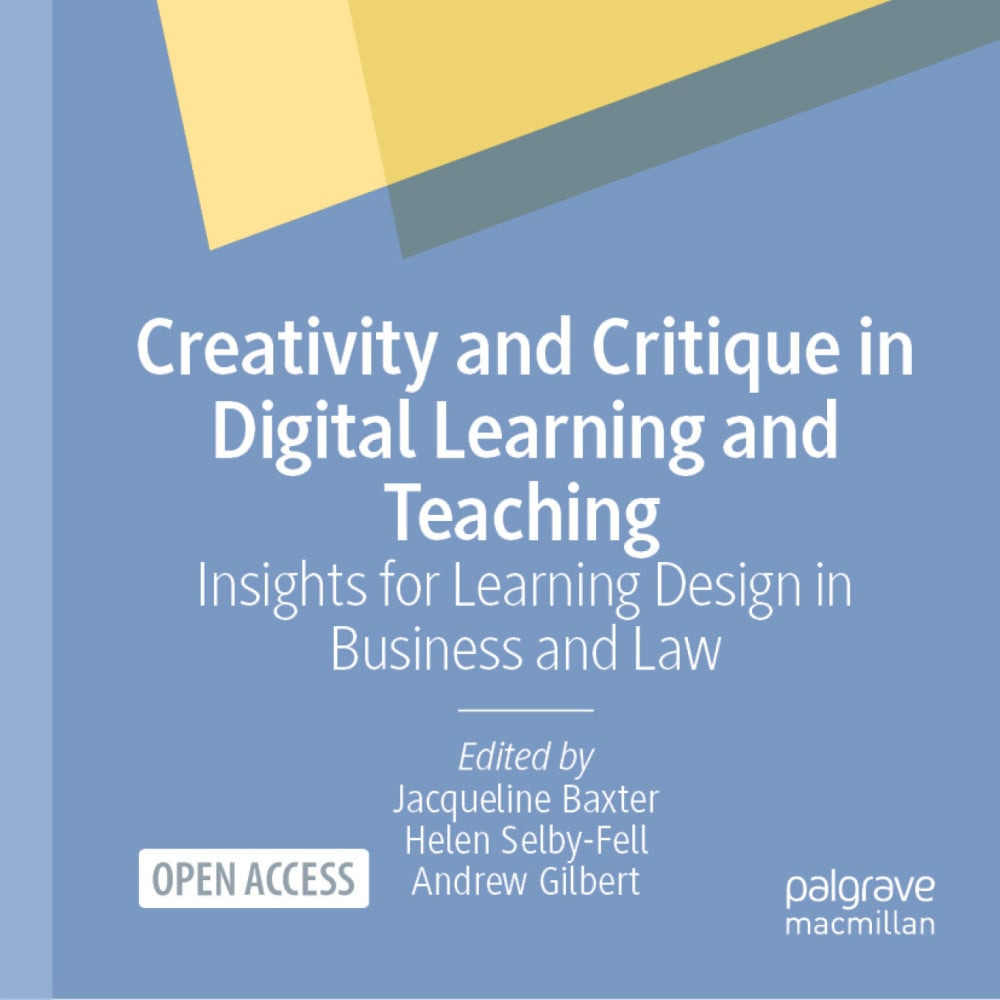
Chartered ABS responds to the DfE’s technical consultation on the International Student Levy
The Chartered ABS has submitted its response to the Department for Education’s technical consultation on the International Student Levy.
5+1: Five challenges facing business schools and one solution

Authors

Liz Hardie
Director of SCiLAB and senior lecturer, Open University
Following on from her presentation at Learning, Teaching & Student Experience 2025 (LTSE 2025), Liz Hardie, Director of SCiLAB and senior lecturer, Open University, reflects on the realities of business education in the digital age and the publication of their recent open-access book ‘Creativity and Critique in Digital Learning and Teaching’, and the support the CMBE scheme can offer.
“I think the next [21st] century will be the century of complexity.” Stephen Hawking’s answer to a journalist in 2000 referred to science, but is arguably equally applicable to higher education and the teaching of business students. In an era defined by rapid technological change, market-driven reforms, and shifting student expectations, teaching business at university is more complex than ever.
In a recent survey in March 2025, 75 business school Deans from across the world were asked what the biggest threat to business education was. The top five answers referred to declining student numbers (demographic changes, increasing competition, high tuition costs, global uncertainties impacting international students, and reduced employer demand).
I had the privilege of being able to reflect on the realities of business education in the digital age at the recent Chartered ABS LTSE 2025 conference in Nottingham in May 2025, drawing on the experience of the Open University (OU) Business School in digital education and critical insights from our recent new book ‘Creativity and Critique in Digital Learning and Teaching’. During my morning fringe event, I identified five challenges facing business schools and one solution.
Challenges
It is commonly acknowledged that business schools are facing the following five challenges in the early twenty-first century:
Financial constraints on Higher Education.
Real time funding via tuition loans has reduced over the last ten years by approximately 30% in real terms, while international student numbers are reducing due to changes in government policy. At the same time higher education costs are increasing, leading to budgetary pressures across the sector. With UK business schools teaching more university graduates than any other subject area, and 1 in 3 business students being international students, we are not immune to these financial constraints and pressures.An increasing competitive marketplace for graduates.
Graduates are understandably concerned about their chances of securing employment after graduation, and there are increasingly visible debates about the value of a degree or MBA. This puts pressure on business schools to demonstrate value and focus on employability skills and outcomes.Concerns about awarding gaps and inclusion.
Universities are focusing more heavily on student outcomes and the reduction of awarding gaps, prompted by the Office for Students’ requirements. The increasingly global and diverse nature of business means this is particularly important for business schools.The impact of Covid-19.
We all saw in 2020 a rapid move to online learning, and post-pandemic online learning remains for most universities ‘business as usual’ in some fashion, often due to financial reasons. However there are significant differences in teaching and learning online compared to face to face. In the rush to adapt, and then recover from the pandemic, academics and institutions often did not have time and space to consider, reflect on and learn the skills and approaches needed.Generation Z digital natives are being taught by Gen X and baby boomer academics.
Our current students have been brought up with technology and are adapt at using it, but often uncritically and unthinkingly. By contrast most academics have the necessary critical skills but are less familiar in using technology intuitively.
Solution
So, what was the one solution I suggested? Alongside these complex challenges lies a powerful opportunity: the Scholarship of Teaching and Learning (SoTL) as a tool for renewal, innovation, and academic integrity. There is academic disagreement over the meaning of SoTL, which is often used as an umbrella term for a variety of different practices. However, we use it to mean teaching and learning being underpinned by practitioner-led systematic inquiry. It involves academics looking not just at what we teach, but how and why to identify the most effective way of teaching our students.
Scholarship can help business schools find ways to address the challenges identified above as well as supporting a curriculum which is evidence based and innovative. This is not always the case in business schools: many innovations are adopted blindly without consideration of whether they improve the student experience and student outcomes or are evidence based. Scholarship can also offer enhanced opportunities for work based learning through technology such as virtual reality and augmented reality, by providing immersive learning experiences where students can practice their skills in real world contexts.
Scholarship offers academics a valuable opportunity to reflect on their teaching practices and question their assumptions. Some academics consider that teaching is something that we ‘just do’ based on experience and tacit knowledge. Scholarship provides the opportunity to air and discuss some of these assumptions and to question the pedagogies used, potentially leading to a vibrant community where teaching is valued and prioritised. Giving academics the time to reflect on their practice also helps to develop their professional identity as educators and academics, something which the CMBE programme run by the Chartered ABS encourages.
My role as director of our scholarship centre in the Faculty of Business and Law allows me the privilege of encouraging scholarship which will have real-world impact on our students. The projects we have supported have influenced curriculum design, enhanced student outcomes, and led to new ways of understanding what it means to learn and teach in the digital era. Our open access book contains a selection of our scholarship work over the last five years and demonstrates the depth and diversity of our work - ranging from employability-focused curriculum innovation, to research in using technology to enhance students’ learning, to pedagogical research on belonging, wellbeing, and digital inclusion. We hope the book is the start of a wider conversation about how we best teach students digitally and what it means to be engaged critically and creatively with SoTL. I hope you can join us in this journey.
Creativity and Critique in Digital Learning and Teaching: Insights for Learning Design in Business and Law edited by Jacqueline Baxter, Helen Selby-Fell and Andrew Gilbert. (Open access)

References
The Century of Complexity | Beshara Magazine
Poets&Quants | Business School Dean Survey: The Major Threats Facing Business Education
The Open University Business School
Certified Management & Business Educator (CMBE) | Chartered Association of Business Schools
The Scholarship Centre for innovation in online Legal and Business education (SCiLAB) |
